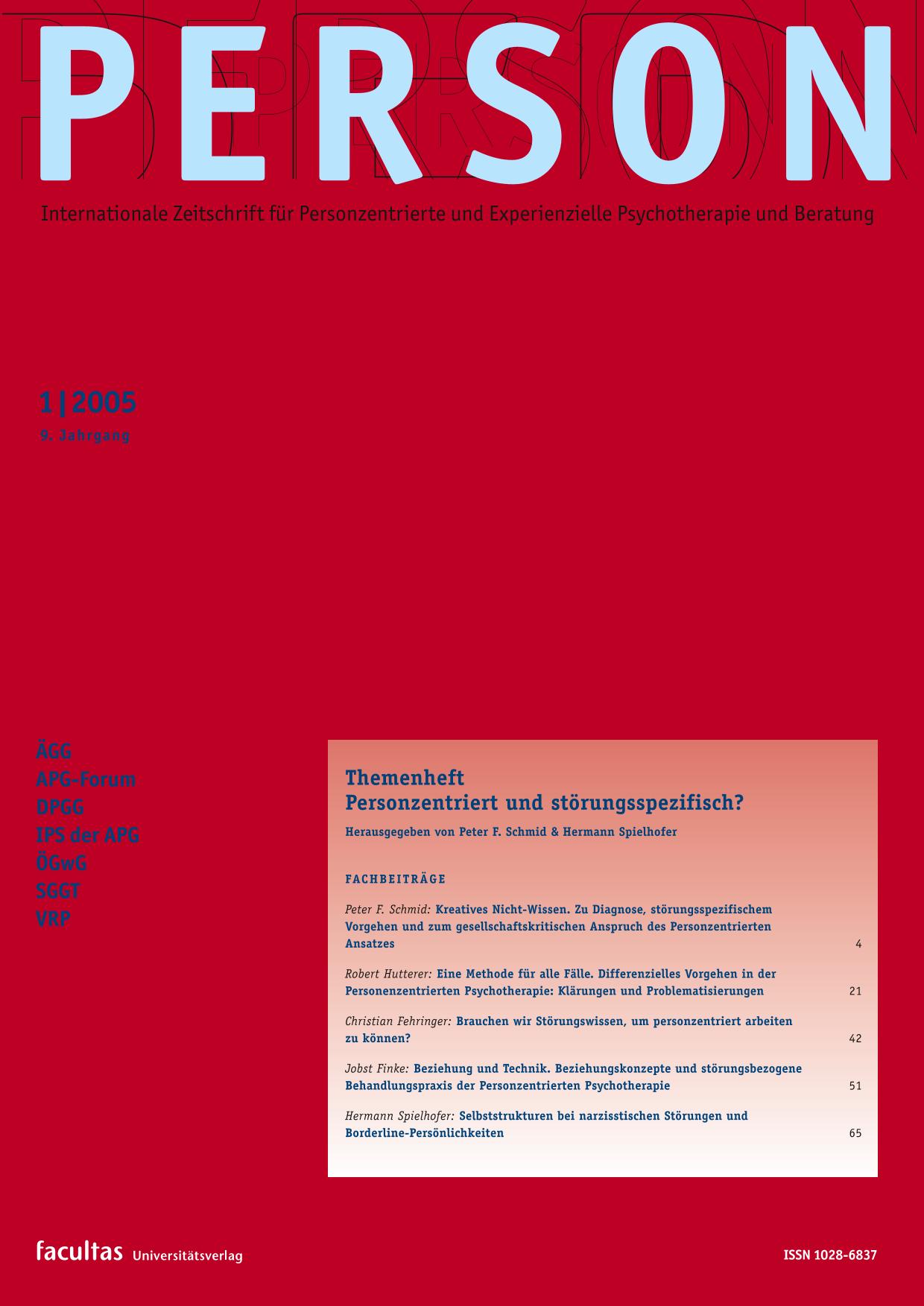Brauchen wir Störungswissen, um personzentriert arbeiten zu können?
Main Article Content
Article Sidebar
Abstract
Do we need knowledge of psychopathology in order to be able to work in a person-centred way? This article looks at the question of whether we need knowledge of psychopathology, that is, under which conditions we need which kind of knowledge when and for what, and which criteria are relevant for our decisions. Complex biological, psychological or social systems provide evidence that all involved components and processes are interconnected and recursive, and thus gain autonomy. Persons are in a permanent process of developing meaning and information in a self-organised way: They construe their reality in continuous processes of interaction with their environment. Apart from person-centred ideas, the concept of autopoiesis is also relevant to this article. Connected with this are constructivist reflections and thoughts on second order cybernetics, which replaces “objectivity” by second degree observation. We observe how others come to their decisions and what then becomes visible or invisible. So, “knowledge” does not represent objects, but distinctions. That means that in our work we are not dealing with the problems
themselves, but only and exclusively with the way clients look at their problems in their personal situation.
How to Cite
Downloads
Article Details
Autopoiesis, constructivism, cybernetics, psychopathological knowledge

